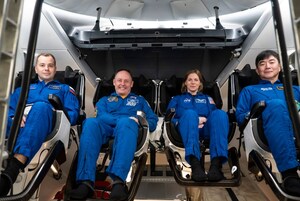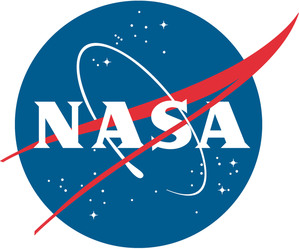
HOUSTON, Oct. 12, 2018 /PRNewswire/ -- Former astronaut and retired U.S. Air Force Col. Richard Searfoss, 62, died Saturday, Sept. 29, at his home in Bear Valley Springs, California. He piloted two space shuttle flights, and commanded a third, spending more than 39 days in space.
"The astronauts, scientists and engineers at Johnson Space Center are deeply saddened by the loss of our good friend and colleague Rick Searfoss," said Chief Astronaut Pat Forrester. "He was a consummate professional, and an exceptional pilot and commander who helped lay the groundwork for much of the human exploration and research activities we continue to pursue today on the International Space Station."
Searfoss was born in Mount Clemens, Michigan, but considered Portsmouth, New Hampshire to be his hometown. He earned a bachelor's degree in aeronautical engineering from the U.S. Air Force Academy in Colorado, and a master's degree in aeronautics from the California Institute of Technology. In the Air Force, he flew F-111Fs in England, was an instructor pilot at Mountain Home Air Force Base in Idaho, and a flight instructor at the U.S. Air Force Test Pilot School at Edwards Air Force Base in California, before being selected as an astronaut candidate in 1990.
He logged more than 5,000 hours of flight time in 56 different aircraft, and held FAA airline transport pilot, glider and flight instructor ratings.
After finishing astronaut candidate training in 1991, Searfoss first served as the pilot for space shuttle Columbia on the STS-58 mission in 1993. STS-58 was the second dedicated Spacelab Life Sciences mission, and the crew collected more 650 scientific samples from themselves and rodents that flew with them to help build a more comprehensive picture of how humans and animals adapt to weightlessness than had previously been available.
Searfoss piloted space shuttle Atlantis on his second mission, STS-76, in 1996. The mission became the third to dock with the Russian Space Station Mir, and delivered astronaut Shannon Lucid to it for an extended stay. Atlantis' crew conducted the first spacewalk around two mated spacecraft and conducted a number of scientific investigations and engineering flight tests.
On his final spaceflight, Searfoss commanded space shuttle Columbia for the STS-90 mission in 1998. It was the final Spacelab mission and focused on neuroscience. Searfoss and his crewmates served as the subjects and operators of 26 science experiments focusing on the effects of microgravity on the brain and nervous system.
For Searfoss' official NASA biography, visit:
https://www.nasa.gov/sites/default/files/atoms/files/searfoss_richard.pdf
SOURCE NASA







Share this article